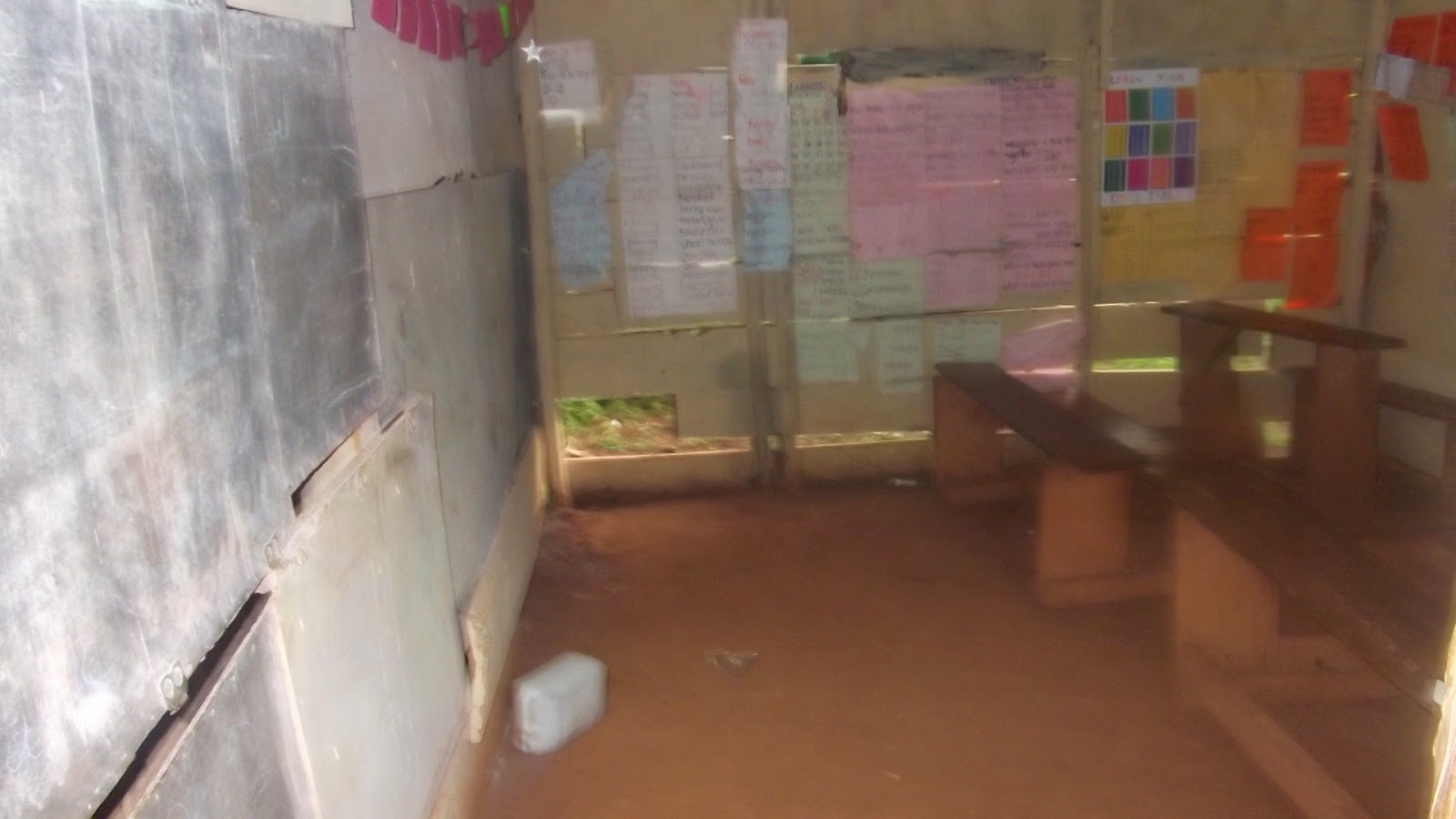But in the UK we are so unbelievably lucky that education, at least through school, is not just available, but is a requirement to all children. In most countries in the world, education is a privilege, something to be treasured, something to fight for.
In Uganda, as is the case in most of the developing world, people have to pay fees to go to school. There are a handful of government schools in Uganda, but they are few and far between, most people have to pay to send their children to school, aside from the cost of uniform, books and pencils. Furthermore, in most Ugandan schools, the rule is if parents haven't paid the fees, children are sent home until the family can find the money, at which point they start where the left off, leaving teenagers in primary school. Remember that these families are often desperately poor, even living on just £1 a day. Now when you think about having to pay school fees for multiple children, find food, pay for healthcare (there's no such thing as the NHS in Uganda either, but that's another post) educating children can be a challenge, and there are many children in Uganda or don't get the opportunity to go to school. It was Nelson Mandela who said that 'education is the most powerful weapon you can use to change the world.' And he is so right! If you educate a child, it provides them with resources to get a job, have an income, believe in their worth, a clear route out of poverty.
Some girls and boys in Uganda enjoying an education at Ruth Mothercare school (see below)
However, often money is not the only barrier which stops children having an education. In many cultures, girls are considered inferior, and are not offered the same educational opportunities as boys. Malala, the girl who stood up to the Taliban because she, as a girl, wanted to go to school, and got shot in the head for it, is a worldwide sensation. World leaders call upon this teenager! But she saw the importance of education, and wasn't willing to let cultural restrictions stop her. What an inspiration!
A debate in a Ugandan classroom left Teacher Anna very unhappy!
But currently there are 65 million girls currently not in school (PLAN International). Just take that in. 65 million. That's more than the entire population of the United Kingdom! Educating girls is not simply about empowerment of that individual, however. Educating a girl can change an entire village, town, city or even country.
This short video shows the amazing impact that educating a girl can have:
http://www.girleffect.org/why-girls/#&panel1-1 Therefore not only does educating a girl help keep her out of poverty, it keeps her safe from the risk of human trafficking, dying in childbirth and HIV.
An amazing book which argues for women's empowerment, 'Half the Sky, How to Change the World' makes this point: “It's no accident that the countries that have enjoyed an economic take off have been those that educated girls and then gave them the autonomy to move to the cities to find work”. The book backs up this claim with stories of transformation from communities who have invested in women. Ultimately, if you want to change the world, educate a girl.
If you want to find out a bit more about this issue, the UN has loads of information of girls education and female empowerment generally. There's a reason why educating girls is part of the Millennium Development Goals.
I also highly recommend: 'Half the Sky: How to Change the World.' Nicholas D. Kristoff and Sheryl WuDunn. and: 'I Am Malala.' Malala Yousafzai.
If you want to do more, child sponsorship is an incredible way which helps get children into schools by helping pay their fees. I highly recommend Smile International, the organisation I worked with whilst in Uganda.
Whilst in Uganda, I had the joy of teaching in some local primary schools, one, pictured below, called Ruth Mothercare. Ruth Mothercare was set up as a school for children who couldn't really afford school, and consequently the fees are a lot lower. Furthermore, as I mentioned, often children get turned away for not paying fees, but after two weeks they are allowed to come back to Ruth Mothercare, and often there are children who haven't paid fees because their families just can't afford it, or have paid for previous years. This school was one of the most wonderful places I have been to, it was a joy to work with their two teachers, Teacher Ruth and Teacher Monica. I don't normally ask for money on this blog, and won't make a habit of it, but I can't stress how amazing Ruth Mothercare as a school is, and what an impact it is having on an incredibly poor community, so if you feel you want to donate, please talk to me. As you can tell I am very passionate about this so do speak to me if you want to know a bit more about this issue.
Ruth Mothercare School, top and bottom is P1 and P2 classroom (one room) and the picture in the middle is the whole school.
A final thought: this is a post about empowering girls. If you agreed with what I said (or at least some of it) you're probably a feminist, just something to chew on!





No comments:
Post a Comment